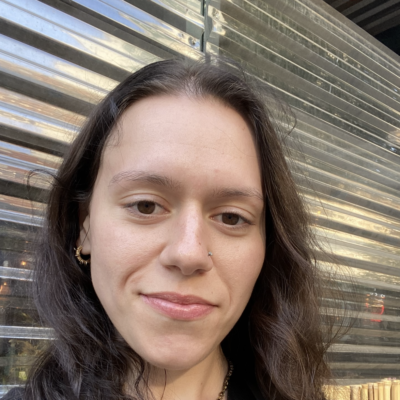Alyssa Boyle is an associate editor at AdExchanger, where she covers TV and video advertising technology. Alyssa’s passion for journalism stemmed from an education in linguistics and translation. In her spare time, she enjoys doing stand-up comedy. We spoke with Alyssa about the intersection of journalism and PR, trends in ad-supported streaming, and what makes a good story.
How did you get into journalism?
I’ve always known I wanted to be a writer. I was never really into fiction writing, but I got a lot of mileage out of debunking or defining a really dense topic.
For example, I majored in Asian American studies and linguistics when I was in college. So I took a lot of history courses about race relations, and one of the more meaningful things I did in my education was write about how that has actually materialized into what we see in our society today, like the model minority myth, for instance. Long story short, I really liked the idea of opening up a window into the past or the way things are done.
I also studied translation and Korean. Translating other languages made me realize journalism is a good fit for me because I can pick an area of interest and break it down in a way that’s palatable for a certain group of people.
What makes for a good story?
At first, I thought a good story means having some sort of resolution. Something happens, someone finds a way to resolve it, you get a life lesson out of it. But really, that’s all a bit too basic. It’s a structure we learn in school, and life doesn’t necessarily even work that way. As a journalist, I get why good storytelling involves a lot more than just applying a structure.
I think a good story means introducing either a new idea, or a new way of expressing an already-existing one – not every story is going to be breaking news. But if it is a story based on something that’s trending, then it has to at least bring a new perspective. Otherwise, things just get repetitive and buried. Discussions about diversity, equity and inclusion is one example.
What is the biggest piece of advice you would give to young PR professionals who pitch you?
I like when PR contacts are not only sufficiently aware of the topics that I write about, but are also pitching a source who has a relevant and valuable perspective for the types of stories I tell.
AdExchanger likes to get very in the weeds of how advertising technology works behind the scenes, for example. So, it’s not always very valuable when I’m pitched a source who’s more tuned in to, say, creative marketing rather than data-driven advertising. Sometimes that means an executive from a product team who can really explain how something works would be a better fit for a story than someone from sales.
Getting the right fit down probably requires a bit more research, but it would make for a much more valuable exchange—and journalists and PR are two sides of the same coin: we’re both trying to work together to tell a story.
What are some of the trends in the media that you’ve witnessed as it relates to your coverage area? And how do you anticipate that industry changing in the future?
The maturation of ad-supported streaming has raised a lot of new questions for the industry to grapple with: how do media companies not just compete for subscribers, but make sure that they also have long-term profitability?
For programmers, that means focusing more on their average revenue per user (ARPU) than just how many subscribers they have. That shift also raises a lot of new questions for streaming services to consider: how should they price subscriptions? What does the optimal ad load look like? Ad loads are an especially interesting one, because only one year ago, streaming services were competing to have the lowest ad load. Now, nearly all of them are increasing their ad volume to drive more money into the bottom line and bump up ARPU in a push for profitability.
If you weren’t a journalist, what other career would you be interested in pursuing?
I considered law school, actually. And the reason ties into my answer for the first question you asked me, which is what sparked my interest in journalism. It really was writing about the history of immigration, race relations and the role of the legal system at the time that sparked my interest in more investigative writing. Plus, well, it also made me realize that I have a very sticky memory, which also helps as a journalist. If you tell me a birthday, the date of a court case or your brother-in-law’s best friend’s sister’s name, I’ll remember it. It’s helpful for careers like journalism or litigating. I realize a lot of the same qualities that made me think I could possibly become a good lawyer are the same qualities that make me a good reporter. But for me, journalism feels more fitting. At the end of the day, all I’m really trying to do is tell a story.
